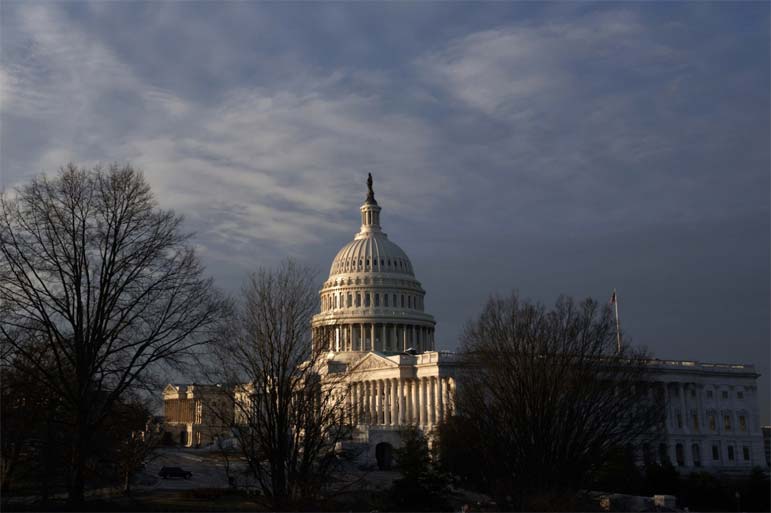
This seems like a straightforward question with an easy answer: Should gay and transgender people be discriminated against in hiring and firing decisions? Most would say no. Why should a bank teller be fired for being gay? Why shouldn't an accounting firm hire a qualified, competent CPA without regard to how he or she identifies?
But no sooner was the decision announced than the questions exploded: Does this ruling apply to schools? Bathrooms? Health clubs? Women's shelters? Prisons? What about churches, parochial schools and other religiously affiliated organizations? How does Bostock affect the Hosanna-Tabor case, a 2012 decision in which the Supreme Court unanimously held that religiously affiliated organizations are protected by a "ministerial exception" when making hiring and firing decisions? What about the cases being litigated under Title IX relating to women's participation in sports (among other issues)?
These questions — and countless others — are not answered in or by the Bostock case.
Critics of the Bostock decision — including the three dissenting justices, Samuel Alito, Brett Kavanaugh and Clarence Thomas — argue that it is not the court's job to rewrite legislation but only to interpret it. Gorsuch says that's precisely what the court did; it interpreted the meaning of the word "sex."
Even if you're inclined to agree with Gorsuch that the court interpreted what the statute means, there's still one important caveat: in this case . This should drive home a very important difference between case law and legislation.
It's not simply a constitutional debate over separation of powers, or a philosophical question about governance by elected representatives — although those are important issues. There are also practical concerns with this method of crafting the laws that govern our daily lives.
When legislation is drafted by Congress or state legislatures, it goes through committee hearings, opportunities for public comment, countless drafts and even multiple versions introduced in the House and Senate (at least for those states with a bicameral legislature). Legislators take months — often years — to consider the implications and execution of the legislation they intend to pass. They ask questions of their constituents, of experts and thought leaders in the field. They put in explanations, conditions and exceptions in response to the input and feedback they have received as the legislation moves through the process of enactment.
What is passed is never perfect. But it is typically comprehensive. (This is why statutes can run hundreds or even thousands of pages.) While legislators cannot possibly anticipate every question or future application of the law, those that they or others have thought of will be incorporated into the statutory text.
Not so with case law.
In the Anglo-American system, judges may only decide issues that are present based upon the facts in the case before them . Judges at every level are constrained by their judicial duties and responsibilities from speaking to how their rulings may be applied in future cases. I am not suggesting that the judges and courts don't think about the future implications — their decisions will have precedential effect, after all — only that they may not issue opinions about different facts or issues that are not before them.
In other words, while the Supreme Court can decide whether or not the plaintiffs in the cases consolidated in Bostock were discriminated against, and whether such discrimination was prohibited by this particular language in that particular statute, the very questions already being asked that are not decided by the Bostock opinion will have to be decided in the future.
Case by case by case by case by case.
Like many Americans, I personally agree with the result in Bostock. But this method of establishing law is expensive and inefficient, to say the very least. The Supreme Court grants very few petitions for writs of certiorari — almost 99% of petitions for appeal sent to the court during one term were denied.
Those that do make it to the Supreme Court will have cost the parties millions of dollars — sometimes tens of millions — in legal fees by the time the litigation is concluded. And yet, when a new dispute with different facts arises, we'll have to ask: Does the ruling in X case apply to these facts? Only one way to find out: Off to court we go again. Even those cases that don't go beyond the lower courts of appeals cost hundreds of thousands of dollars — and are only binding law in the jurisdiction where they're decided.
The better way for these issues to be addressed would be for Congress to step in and do its job — in this case, to amend the 1964 Civil Rights Act to state specifically that "sex" shall be interpreted to mean "sexual orientation" and "gender identity." In so doing, Congress could take into account the other factual circumstances that the Supreme Court cannot, including any necessary exceptions and exclusions, and craft comprehensive legislation accordingly.
Congress has failed to do this. It's certainly not too late for Congress to take up the issues left or created by the Bostock decision, and to provide some statutory specifics and much-needed clarity. But it needs to act. If we have to rely on the United States Supreme Court to write laws because Congress can't seem to, why bother having Congress at all?
(COMMENT, BELOW)
Laura Hirschfeld Hollis is on the faculty at the University of Notre Dame, where she teaches courses in business law and entrepreneurship. She has received numerous awards for her teaching, research, community service and contributions to entrepreneurship education.


 Contact The Editor
Contact The Editor
 Articles By This Author
Articles By This Author